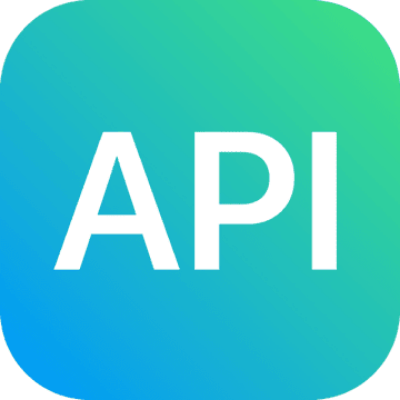Why would you want an alternative to Postman API testing?
While Postman has its merits, it comes with limitations:
Minimal reusable code
Testers struggle with the inability to reuse existing scripts or add new requests. Postman requires testers to write new test case scripts for any new projects, which isn't scalable for enterprise software.
Collection inconsistency
Postman collections don't automatically update when a web service or software changes its parameters or endpoints.
Testing HTTP redirections
While Postman automatically follows HTTP redirects, it can make it difficult to inspect intermediate redirect responses and headers, as the tool will directly navigate to the final URL.
User interface issues
A user-friendly interface is crucial in selecting an API testing tool, as it ensures ease of use, regardless of technical expertise, and provides intuitive navigation. Postman has a steeper learning curve for new users.
Data-handling difficulties
Managing test case scripts with local variables and environment variables is harder in Postman, leading to errors and inconsistencies. Additionally, managing API traffic can be challenging with Postman.
Complicated CI/CD integrations
Connecting Postman with project/bug tracking software or collaboration tools is very difficult. QA teams have begun to adopt automated API testing tools for better integration, eliminating collection challenges and saving time and effort. Data-driven testing isn't available in Postman, a significant deterrent in running multiple API tests.
Which Postman API testing alternative should you choose?
Zoho QEngine
Zoho QEngine is test automation software that allows testers and developers to write, manage, and execute test cases for web apps, mobile apps, and APIs. QEngine has a no-code recorder, low-code builder, and pro-code editor that ensures even those with minimal testing skills can run test automation.
- QEngine is a comprehensive API testing tool that enables the creation of multiple API scripts with a visual builder in a single-window. API testing is made more efficient via the easy management of test case scripts, reusability of code, and streamlining of CI/CD integrations.
- QEngine's API testing capability allows users to validate data, invoke continuous requests, and store global and environment variables with its variables repository.
- To further understand and debug errors in APIs, QEngine provides insightful dashboards that include the test results, status code, response time, response body, response header, and request details.
- QEngine's user-friendly interface ensures ease of use and intuitive navigation, making it accessible for users with varying levels of expertise.
- QEngine integrates with popular tools, such as JIRA and Jenkins, but it doesn't integrate extensively with third-party software yet.
RapidAPI (Previously Paw)
Specifically for MacOS, RapidAPI has an extensive HTTP client. RapidAPI provides multiple extensions and allows third-party extensions.
- RapidAPI is equipped with a code generator that can provide code for multiple programming languages.
- RapidAPI allows users to create and use dynamic values for API testing. Requests and responses are automatically validated.
- RapidAPI allows integration with third-party APIs, such as the Google Maps API, enabling developers to embed interactive maps into their applications.
- Supports Mac only.
- Has a complicated deployment.
HTTPie
HTTPie is an open-source API testing tool that provides a command line interface HTTP client that's compatible with Python. It provides a sleek UI for web as well as desktop.
- Open-source, free tool.
- Allows global and environmental variables for API requests.
- Doesn't support advanced authentication.
- Doesn't allow multiple requests at once.
API Tester

API Tester is a mobile app that helps test any type of API, be it REST, GraphQL, SOAP, or HTTPS.
- Open-source, free tool.
- A crucial advantage that API Tester has is that it allows raw data, query params, and file imports.
- No support for Windows or Linux.
- Doesn't allow multiple requests at once.
Insomnia
Insomnia is an open-source API tool that helps build and test APIs for HTTP, REST, GraphQL, gRPC, and SOAP.
- Can add custom data to requests.
- Allows global and environmental variables.
- Testing only for API specs in open source.
- No support for folders.
Hoppscotch

Like other API testing tools on this list, Hoppscotch is an open-source API tool.
- Hoppscotch is equipped to test APIs directly in the browser.
- Allows for custom scripting.
- Hoppscotch doesn't support local testing.
- Lacks a collection runner to run all API requests at once.
Bruno
Quite different from other API testing tools, Bruno is built for local machines alone. Since there's no cloud sync for Bruno, the API client stores requests, variables, and collections as plain text files on a local machine.
- Bruno stores collections in folders on local machines.
- Allows collaboration via Git.
- Only has a desktop app and doesn't have cloud sync.
- Can't set headers, auth, or variables in local folders.
Thunder Client

Thunder Client is equipped with a VS Code extension to avoid switching between apps.
- Has an easy-to-use dropdown query builder.
- Supports collections and variables, and allows collaboration via Git.
- Has restrictions on the number of requests per collection.
- Available only as a VS Code extension.
Swagger
Swagger has quite a few open-source tools, such as Swagger Editor, Swagger UI, Swagger Codegen, and Swagger Hub. These tools help build APIs, visualize them, generate client libraries, create API documentation, and more.
- Swagger supports most programming languages.
- Provides error feedback and autocompletes syntax for users.
- Minimal support for SOAP APIs.
- Doesn't support JSON Form Editor.
Apidog
Apidog is a comprehensive API testing tool that helps build APIs, test them visually, and share technical documentation.
- Allows the importing of Postman collections.
- Supports API mocking and CI/CD integrations.
- Has limitations for complex test case scenarios.
- Steep learning curve for testing novices.
Firecamp
Firecamp is an open-source API testing and development platform that allows testing of GraphQL, WebSocket, Socket.IO, and REST APIs.
- Firecamp supports automatic script generation in multiple programming languages.
- It has a built-in authentication system that supports various authentication methods, such as Bearer, AWS, and Digest.
- Does not support headers and variables for folders.
- No CLI available.
Nightingale
Nightingale is an open-source REST API client for Windows.
- Easy installation with a simple UI.
- Allows custom variables.
- Available only on Windows.
- Does not support user hierarchy management.
TestMace
TestMace is an API testing tool that helps write test cases for complex scenarios, with a graphics editor for multiple environments. As an HTTP client, it's also equipped with autocomplete syntax and variables, and allows folder systems for requests.
- Compatible with Windows, Mac, and Linux.
- Allows users to see requests and responses simultaneously.
- Does not support SOAP APIs.
- Can't help with API monitoring.
RecipeUI

RecipeUI is a Postman alternative for API testing, with built-in type safety. A type-safe API enables a client application to specify the exact API protocol and data types that it will use to communicate with a server, helping to reduce missing fields or errors.
- RecipeUI comes equipped with JSON autocomplete.
- Easy to build URL variables.
- No CLI available for API testing.
- Doesn't support SOAP APIs.
Assertible

Assertible relies on a robust GUI for API testing and monitoring.
- Enables API testing even after deployments.
- Allows encryption of variables for better security.
- No CLI available.
- Doesn't support custom variables.
Apache JMeter

Apache JMeter is an open-source tool that allows API testing for Windows, Mac, and Linux.
- Suitable for performance and load testing of web applications.
- Integrates with Jenkins for a seamless CI/CD pipeline.
- Needs Jenkins integrations for API monitoring.
- UI is not user-friendly for API testing.
Karate Labs

An open-source tool for API and UI testing, Karate Labs utilizes Gherkin syntax to write API tests.
- Provides native JSON support and enables JSON validation.
- Allows API mock testing.
- Being a niche framework, documentation is limited.
- Relies on its own scripting language.
BlazeMeter
BlazeMeter is a cloud-based performance testing tool that also supports API testing.
- BlazeMeter allows stress testing and load testing of APIs.
- Has API monitoring capabilities.
- Advanced features are available only in higher paid plans.
- Cumbersome for complex test scenarios.
Disclaimer:
So which API testing tools are better than Postman?
Each of these tools has its pros and cons, but a few parameters for evaluating API testing tools are:
Specific use cases
When choosing the API tool, the tester's objectives in functional testing, load testing, and security testing need to be aligned. Validating API responses for complex test scenarios is also needed.
Feature sets
Advanced features, such as test automation, visual builders, and CI/CD integrations, need to be evaluated.
Code stacks
Choosing an API tool that integrates well with popular tech stacks, such as Java, Python, and JavaScript, is important.
Ease of use
An intuitive user interface, ease of API test creation, and reporting/dashboard capabilities help smooth out the learning curve.
Move to Zoho QEngine from Postman
Switch to Zoho QEngine from Postman for a comprehensive testing solution. Zoho QEngine's full-stack capabilities ensure all your testing goals are met efficiently, making it the ideal choice for your API testing needs.
Frequently asked questions
What is API testing?
An application programming interface (API) is a common code component that helps connect software or tools by providing instructions on actions that need to be performed. The software or tools can vary from databases to web services, UIs, enterprise service buses, or mainframes. For example, a user can invoke an API in CRM software to push data into payment software. The API contains code that interacts with the other software and has instructions to fetch or add data in a particular format that is readable by both platforms.
API testing helps check if the code component that enables software interaction is working as intended. API test automation can streamline the testing process by providing intuitive and powerful automation features. Understanding the objective behind an API will help analyze the input and expected output.
Why is it critical for software development?
API testing is critical in software development, as it ensures that the security of the software isn't compromised. It does this by checking for authentication, authorization of tasks, protection of data, and more. A change in functionality or new feature additions mandate that API testing is done, so that any existing functionality that uses APIs isn't affected. While executing UI testing is more time consuming, API testing has a faster execution time and provides better test coverage.
While API testing is not usually done for minor GUI changes, alterations to software components require API testing. Performance testing is also essential in evaluating API functionality under expected load and ensuring optimal performance. Similarly, security testing plays a crucial role in assessing vulnerabilities and ensuring secure API operations.